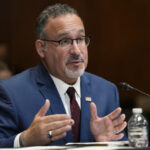According to the authors of a new book, expanding access to leading universities, including Oxbridge, would boost social mobility.
The authors of the new book said that strictly limiting the number of private school students from attending prominent universities like Cambridge and Oxford is a ‘radical’ decision needed to improve access to elite professions and boost UK social mobility.
Professors of sociology at the London School of Economics Sam Friedman and Aaron Reeves argued that students from top private schools like Winchester and Eton have an uneven hold on Russell Group universities and Oxbridge despite the current improvement in admission policies.
The duo says top selective universities should have to limit their admission of privately educated undergraduates to a more representative 10% yearly as compared to 30% that other universities such as Cambridge, Oxford, and Durham currently take.
According to Friedman, students from top private schools who attend prominent universities are 52 times more likely to attain elite positions in society than students who attend other institutions. He stated, “I think that calls for radical and provocative action.”
Prominent universities could also increase their geographic diversity by selecting students from public schools through a lottery open to all students with entry-level requirements. This would overcome the heavy bias in application and admission toward those in London and the south-east of England.
Revees, co-author of Born to Rule, published this week, stated, “Oxford and Cambridge in particular, but the Russell Group [of universities] more broadly, play a really important role in putting particular people on to this kind of conveyor belt of access into elite positions.”
“We found that in many respects, the elite has changed over time but much less than we might think because these universities, particularly Oxbridge, play such a crucial role in propelling their alumni into elite positions.
“If we want to make genuine progress on opening up many of these elite positions to wider segments of society, then actually opening up those universities to those same communities would become a really important move, if indeed we’re serious about trying to generate greater social mobility.”
Friedman and Reeves analyzed the careers and lives of over 125,000 members of the British elite from the 1890s to date and discovered that those born into the top 1% are more likely to be the elite than they were more than a century ago.
According to Friedman, attending Cambridge or Oxford boosts the outcomes for all graduates. The universities also retained a unique “propulsive power” that wasn’t well understood or documented.
“When we look at the trajectories of people who have made it into elite positions, there’s a profound overrepresentation of people going to those universities. And that indicates that those universities have a particular ability to equip their alumni.
“It is, I suppose, an open question in terms of exactly what it is, whether it’s particular credentials that themselves are doing the propulsive work, or whether it’s other types of skills or networks that they pick up along the way. But certainly we can see that simply having an Oxbridge education seems to be very closely linked to reaching an elite position.”
According to Friedman, using a lottery to admit students instead of interviews would reduce the “arms race” of tutoring and preparation undertaken by parents and schools for their children.















